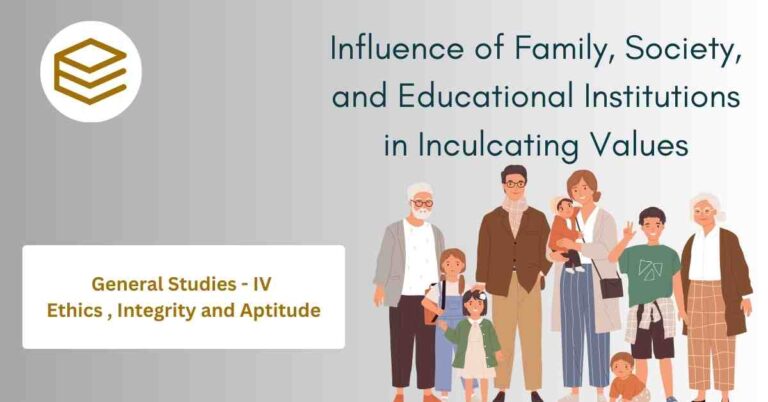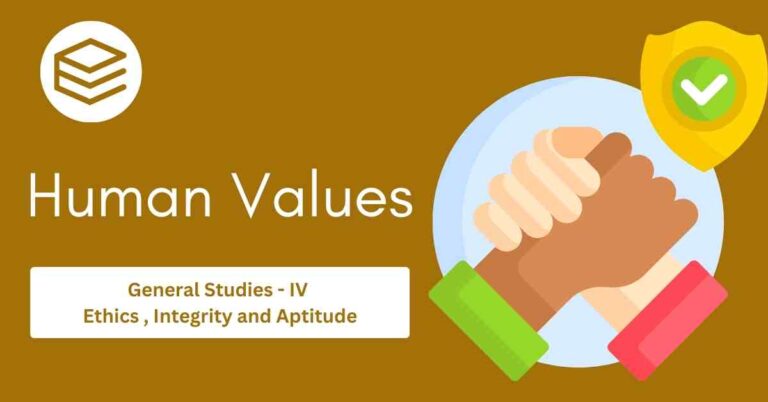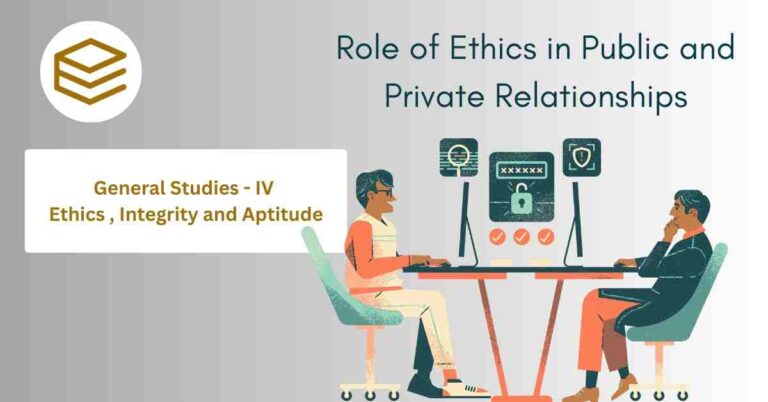January 25, 2026 4:32 am

Ethics is a system of principles that guide behavior, shaping how we make decisions and interact with others. These principles operate across different dimensions, influencing individual actions, societal norms, and professional practices. Understanding these dimensions—personal ethics, societal ethics, and professional ethics—is essential to fostering a harmonious, just, and progressive world. This article explores each dimension in depth, unpacking their significance, challenges, and interplay in daily life.
Interconnection Between Dimensions
While the dimensions of ethics have distinct roles, they are deeply interconnected:
- Meta Ethics provides the philosophical foundation, helping us define concepts like “good” and “justice.”
- Prescriptive Ethics builds on this foundation, offering practical guidelines for moral behavior.
- Descriptive Ethics complements these dimensions by analyzing how ethical beliefs are practiced across cultures and societies.
- Applied Ethics draws from all three to address specific, tangible issues in everyday life.
For example:
- A debate about AI ethics might begin with meta-ethical questions about the nature of accountability, progress to normative frameworks on how AI should behave, and finally involve applied ethics to regulate AI’s use in healthcare or law enforcement.
I. Personal Ethics
Personal ethics are the moral values and principles that guide an individual’s decisions and behavior. They are deeply rooted in personal beliefs, upbringing, cultural influences, and life experiences. These ethics are the foundation of moral character and define how a person interacts with others and handles their responsibilities.
1. Understanding Personal Ethics
Personal ethics encompass a wide range of values, such as:
- Honesty: Speaking the truth and being transparent in actions.
- Integrity: Consistently adhering to moral principles, even under pressure.
- Empathy: Understanding and respecting the feelings and perspectives of others.
- Responsibility: Owning one’s actions and their consequences.

For instance, consider someone who finds a wallet on the street. Personal ethics, such as honesty and responsibility, would compel them to return the wallet to its rightful owner rather than keeping the money for themselves.
2. Importance of Personal Ethics
Personal ethics are essential for personal growth and positive relationships:
- Self-Respect: Living in alignment with one’s values fosters self-esteem and confidence.
- Decision-Making: A clear ethical framework helps individuals navigate complex or ambiguous situations.
- Trust Building: Ethical behavior strengthens relationships and builds trust with others.
3. Challenges to Personal Ethics
Everyday life presents situations that test personal ethics:
- Temptation: Situations that offer immediate rewards may tempt individuals to stray from their values.
- Example: A student might face the temptation to cheat on an exam to achieve a high score.
- Conflict of Values: Ethical dilemmas arise when two or more values collide.
- Example: Choosing between loyalty to a friend and honesty in reporting their wrongdoing.
- External Pressures: Societal or peer expectations can sometimes contradict personal beliefs.
- Example: Pressure to conform to unethical behaviors in a group setting, such as bullying.
4. Developing and Strengthening Personal Ethics
Building a strong ethical foundation requires conscious effort:
- Reflection: Regular self-assessment helps identify core values and evaluate actions.
- Role Models: Observing ethical behavior in mentors or peers provides inspiration.
- Growth Mindset: Recognizing that ethics can evolve with experience and learning.
By adhering to personal ethics, individuals not only improve their own lives but also positively influence those around them.
II. Societal Ethics
Societal ethics are the collective moral standards that govern behavior within a community or society. These ethics emerge from shared values, cultural traditions, and laws, guiding how individuals and groups interact to promote harmony and justice.
1. What Are Societal Ethics?
Societal ethics represent the “rules” by which a community operates. They address issues like:
- Justice: Ensuring fairness in how resources, opportunities, and rights are distributed.
- Equality: Promoting the dignity and rights of all members of society, regardless of differences.
- Civic Responsibility: Encouraging individuals to act in ways that benefit the broader community, such as voting or volunteering.
For example, societal ethics might dictate that stealing is wrong because it violates the rights of others and disrupts social harmony.
2. Why Societal Ethics Matter
Societal ethics are essential for maintaining order and fostering collective well-being:
- Creating Laws and Policies: Ethical principles form the basis of legal systems, ensuring justice and equity.
- Promoting Social Harmony: Shared values reduce conflict and encourage cooperation.
- Encouraging Altruism: Societal ethics inspire individuals to prioritize the greater good over personal gain.
Consider the ethical principle of environmental stewardship. This value drives societal efforts to combat climate change, protect biodiversity, and ensure sustainable development for future generations.
3. Evolution of Societal Ethics
Societal ethics are not static; they evolve as societies change:
- Historical Shifts: Movements like the abolition of slavery, women’s suffrage, and civil rights reflect ethical growth over time.
- Globalization: Cross-cultural exchanges introduce new perspectives on ethics, such as global human rights or cultural preservation.
- Technological Advancements: Innovations raise ethical questions, such as the use of artificial intelligence in decision-making or the ethical implications of genetic engineering.
4. Challenges to Societal Ethics
Despite their importance, societal ethics often face significant challenges:
- Cultural Relativism vs. Universalism: While some argue that ethics should vary by cultural norms, others advocate for universal principles like human rights.
- Conflicting Values: In diverse societies, disagreements over what constitutes ethical behavior can lead to division.
- Example: Debates over issues like abortion or freedom of speech highlight differing ethical priorities.
- Resistance to Change: Societal norms may lag behind evolving ethical standards, such as delayed recognition of LGBTQ+ rights in certain regions.
5. Strengthening Societal Ethics
Communities can promote ethical progress by:
- Encouraging Dialogue: Open discussions about ethical issues foster understanding and consensus.
- Education: Teaching ethics in schools helps instill a strong moral foundation in future generations.
- Collective Action: Advocacy and activism can drive societal change, such as movements for climate justice or racial equality.
III. Professional Ethics
Professional ethics refer to the standards and principles that guide behavior in specific occupations or industries. They ensure accountability, fairness, and integrity in the workplace while protecting the interests of clients, colleagues, and the broader public.
1. What Are Professional Ethics?
Professional ethics are codified in industry-specific guidelines, such as:
- Confidentiality: Protecting sensitive information, such as patient details in healthcare or trade secrets in business.
- Competence: Maintaining the skills and knowledge necessary to perform one’s duties effectively.
- Transparency: Being open and honest about business practices, financial dealings, and intentions.
For instance, a doctor’s adherence to the Hippocratic Oath reflects professional ethics, prioritizing patient welfare above all else.
2. Importance of Professional Ethics
Professional ethics are vital for maintaining trust and credibility:
- Building Public Confidence: Ethical professionals inspire trust among clients, colleagues, and stakeholders.
- Ensuring Fair Treatment: Standards of ethics prevent discrimination, harassment, or exploitation in the workplace.
- Minimizing Harm: Ethical practices safeguard against malpractice or negligence, protecting lives and livelihoods.
3. Ethical Challenges in the Workplace
Workplace ethics are often tested by real-world dilemmas that can challenge professional integrity:
- Conflicts of Interest: Balancing personal gain with professional responsibilities can create ethical gray areas.
- Example: A lawyer representing a friend might struggle to maintain objectivity.
- Pressure to Compromise: Meeting business targets or deadlines may tempt employees to take shortcuts or act unethically.
- Example: A salesperson might exaggerate product features to secure a deal.
- Lack of Clear Guidelines: Emerging industries often lack established ethical frameworks, leading to uncertainty.
- Example: The ethical use of data in artificial intelligence or the ownership of personal information.
4. Promoting Ethical Practices in Professions
Organizations play a critical role in fostering ethical workplaces through clear standards and supportive cultures:
- Codes of Conduct: Formalized rules ensure clarity about expected behavior.
- Example: A company’s code might prohibit insider trading or outline anti-discrimination policies.
- Training Programs: Regular workshops and scenarios help employees recognize and resolve ethical dilemmas.
- Whistleblower Protections: Safeguards encourage individuals to report unethical practices without fear of retaliation.
- Ethical Leadership: Leaders modeling ethical behavior set an example for their teams and foster trust.
For example, a healthcare organization might ensure that all employees are trained in the principles of patient confidentiality to prevent breaches of trust.
IV. Interconnections Between Dimensions
Although personal, societal, and professional ethics operate within distinct spheres, they are deeply interconnected and often influence one another.
1. How They Interact
- Personal and Societal Ethics: An individual’s values shape societal norms, and societal ethics often reinforce personal beliefs.
- Example: Someone who values fairness may advocate for societal policies that promote equal opportunities.
- Professional and Societal Ethics: Professional standards reflect societal values, while businesses and professionals contribute to the greater good.
- Example: A company adopting environmentally sustainable practices aligns professional ethics with societal goals like combating climate change.
- Personal and Professional Ethics: A person’s moral compass influences their professional behavior, while workplace culture can shape personal ethics over time.
- Example: A journalist might follow personal principles of truthfulness, which align with their professional duty to report accurate information.
2. Real-Life Ethical Dilemmas
Ethical dilemmas often arise when different dimensions of ethics conflict:
- Example 1: A doctor might face a decision between their personal belief against euthanasia, a patient’s societal right to choose, and their professional responsibility to provide care.
- Example 2: A software engineer developing AI may feel conflicted between their personal values about privacy, societal concerns about bias, and their company’s goal to innovate.
3. The Importance of Alignment
Aligning these dimensions fosters trust, cohesion, and progress:
- Consistency: Acting ethically across all dimensions builds credibility and reinforces trust.
- Collaboration: Understanding the interplay between personal, societal, and professional ethics can help resolve complex ethical challenges.
- Social Impact: Ethical alignment ensures that decisions made in professional and personal contexts contribute positively to society.
Interconnection Between Dimensions
While the dimensions of ethics have distinct roles, they are deeply interconnected:
- Meta Ethics provides the philosophical foundation, helping us define concepts like “good” and “justice.”
- Prescriptive Ethics builds on this foundation, offering practical guidelines for moral behavior.
- Descriptive Ethics complements these dimensions by analyzing how ethical beliefs are practiced across cultures and societies.
- Applied Ethics draws from all three to address specific, tangible issues in everyday life.
For example:
- A debate about AI ethics might begin with meta-ethical questions about the nature of accountability, progress to normative frameworks on how AI should behave, and finally involve applied ethics to regulate AI’s use in healthcare or law enforcement.
V. Navigating Ethical Challenges
Ethical challenges are inevitable in a complex world, but they can be effectively managed through awareness, education, and leadership.
1. Education and Awareness
Promoting ethics education helps individuals develop the skills needed to navigate moral dilemmas:
- Schools: Introducing ethical reasoning in curricula builds foundations for future decision-making.
- Workplaces: Offering ethics training equips professionals to handle industry-specific challenges.
- Self-Reflection: Encouraging individuals to examine their values, biases, and motivations enhances moral clarity.
2. Open Communication
Ethical dialogue fosters mutual understanding and innovation:
- Community Engagement: Facilitating discussions about societal ethics promotes cohesion and shared solutions.
- Example: Hosting town halls to address community concerns about development projects.
- Professional Collaboration: Encouraging ethical debates within industries helps refine standards.
- Example: Tech companies collaborating to create AI guidelines.
3. Ethical Leadership
Leaders have the power to model and enforce ethical behavior:
- Transparency: Openly addressing ethical concerns builds trust and demonstrates integrity.
- Accountability: Holding oneself and others responsible for their actions ensures ethical compliance.
- Vision: Ethical leaders inspire change by prioritizing long-term values over short-term gains.
4. Continuous Evaluation
Ethics must evolve to address emerging challenges:
- Technological Innovations: Updating ethical standards to consider issues like data privacy, cybersecurity, or AI bias.
- Global Challenges: Tackling cross-border issues, such as climate change or human trafficking, with collective ethical frameworks.
- Cultural Sensitivity: Ensuring that ethical practices are inclusive of diverse perspectives and values.

1. Meta Ethics: The Foundation of Morality
- What is Meta Ethics? Meta ethics delves into the meaning, origin, and nature of ethical principles. It does not prescribe rules for behavior but instead seeks to answer foundational questions about morality itself.
- Key Questions Explored:
- What does it mean for something to be “good” or “bad”?
- Are moral judgments objective truths or subjective opinions?
- Do ethical values exist independently of human beliefs?
- Why It Matters: Meta ethics helps us understand the philosophical roots of morality. For example, it explores whether morality is derived from reason, culture, divine commands, or emotions. This exploration builds the groundwork for other dimensions of ethics.
2. Prescriptive Ethics (Normative Ethics): Establishing Moral Standards
- What is Prescriptive Ethics? This dimension focuses on defining standards and principles for what individuals should do. It provides a framework for making moral decisions and guiding actions.
- Subcategories:
- Deontological Ethics:
- Core Idea: Focuses on duties, rules, and obligations. Actions are judged based on adherence to principles, not outcomes.
- Example: Telling the truth is morally right, even if it leads to negative consequences.
- Philosopher: Immanuel Kant and his categorical imperative (act in ways that could be universally applied).
- Teleological Ethics (Consequentialism):
- Core Idea: Focuses on the consequences of actions. The morality of an action depends on its outcomes.
- Example: Utilitarianism, which advocates for actions that maximize happiness for the greatest number of people.
- Philosopher: Jeremy Bentham and John Stuart Mill.
- Virtue Ethics:
- Core Idea: Emphasizes character and the cultivation of moral virtues like honesty, courage, and kindness.
- Example: Rather than asking “What should I do?” it asks “What kind of person should I be?”
- Philosopher: Aristotle’s idea of achieving eudaimonia (a flourishing life) through virtuous living.
- Deontological Ethics:
- Why It Matters: Prescriptive ethics provides a structured approach to moral decision-making, enabling individuals to act consistently with their values.
3. Descriptive Ethics (Comparative Ethics): Understanding Ethical Practices Across Cultures
- What is Descriptive Ethics? Unlike prescriptive ethics, descriptive ethics does not tell us what we ought to do. Instead, it observes and analyzes how people and societies define and practice morality.
- Focus Areas:
- Examines cultural differences in moral values.
- Investigates the psychological and social factors influencing ethical behavior.
- Studies historical changes in moral attitudes and beliefs.
- Why It Matters: Descriptive ethics offers a comparative perspective on morality. It highlights the diversity of ethical systems and helps us appreciate how cultural, religious, and historical contexts shape our understanding of right and wrong.
- Example in Practice: Researching why certain cultures prioritize community welfare over individual freedom, or why some societies have stricter norms about environmental responsibility.
4. Applied Ethics: Practical Problem-Solving in Real-World Contexts
- What is Applied Ethics? Applied ethics deals with specific, real-world ethical dilemmas. It applies principles from normative ethics to practical issues, ensuring ethical decision-making in various fields.
- Key Areas:
- Bioethics:
- Addresses ethical issues in healthcare and biology.
- Examples: Organ donation, euthanasia, and genetic engineering.
- Cyber Ethics:
- Explores ethical concerns related to technology and the internet.
- Examples: Data privacy, AI bias, and cyberbullying.
- Environmental Ethics:
- Focuses on the moral relationship between humans and the environment.
- Examples: Climate change, deforestation, and animal rights.
- International Ethics:
- Examines ethics in global relations, such as war, trade, and human rights.
- Examples: Ethical implications of drone warfare or refugee policies.
- Bioethics:
- Why It Matters: Applied ethics bridges the gap between theory and practice, addressing complex dilemmas that affect individuals, organizations, and societies. For instance, applied ethics is critical in deciding whether self-driving cars should prioritize the safety of passengers or pedestrians in unavoidable accidents.
Conclusion
The dimensions of ethics—personal, societal, and professional—form a comprehensive framework that governs human behavior. Personal ethics shape individual character and actions, societal ethics ensure collective harmony and progress, and professional ethics uphold integrity in specialized roles. Though distinct, these dimensions are interconnected, influencing one another in profound ways.
Navigating ethical complexities requires a commitment to education, reflection, and open dialogue. Aligning ethics across these dimensions fosters trust, justice, and sustainable growth. By striving for ethical consistency in all aspects of life, we contribute to a world that values fairness, respect, and the greater good for all.





